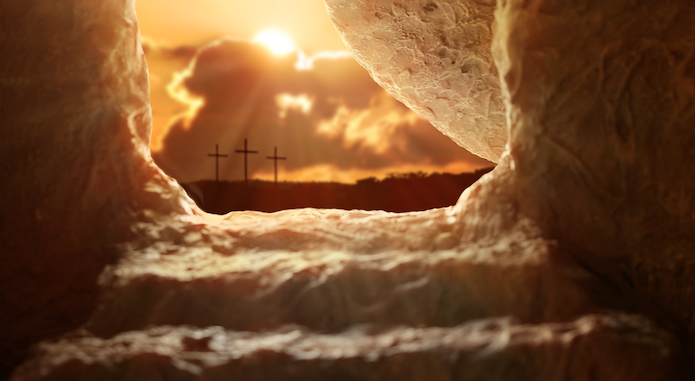By David Faust
 Who first looked at a lobster and said, “You know, I bet that would taste good”? Who was the first beachcomber to pry open an oyster and exclaim, “Mmm, that looks yummy”?
Who first looked at a lobster and said, “You know, I bet that would taste good”? Who was the first beachcomber to pry open an oyster and exclaim, “Mmm, that looks yummy”?
We take guitars and violins for granted, but who first discovered that strings tightly stretched across a wooden frame could produce pleasing sounds? Who was the first person to blow in a hollow ram’s horn, paving the way for tubas, trumpets, and trombones?
God isn’t surprised by our discoveries. Long before any mines were dug, God knew where the gold was buried. He wasn’t startled when microscopes and telescopes unveiled the mysteries of DNA and the immensity of the universe. He knew it all along.
What’s New?
The word new has different meanings depending on the context. If you buy a used car with 100,000 miles on the odometer, you might call it your “new car.” It’s not fresh off the assembly line, but it’s new to your driveway. Alexander Graham Bell’s new telephone marked a major advance in communication technology, but the new smartphone you carry in your pocket far surpasses Bell’s wildest dreams.
In biblical times there were different Greek words for “new.” Neos referred to something recent, young, or new in terms of time, while kainos meant something fresh in quality or form—different in its very nature from what is old. Kainos (new in quality, not just in time) is the word used to describe the new creations we become in Christ
(2 Corinthians 5:17), the new covenant Jesus died to establish (Hebrews 8:13), the new song that surrounds the throne of God (Revelation 5:9), and the new heaven and new earth awaiting God’s people (Revelation 21:1). These blessings are not just new in terms of time; they signify a huge leap forward in terms of quality.
A New Tomb
Joseph of Arimathea and Nicodemus removed Jesus’ lifeless body from the cross and placed it in a new tomb.
• Jesus’ tomb was previously unused. It was “a new tomb, in which no one had ever been laid” (John 19:41). No other body had ever been placed in that precise spot. Jesus’ burial place was his alone.
• Jesus’ tomb was swiftly unoccupied. His body didn’t require any long-term accommodations. The Lord only needed to borrow the gravesite for three days. On that bright morning his discarded grave clothes remained as a silent witness to a miracle so astounding that his disciples struggled to comprehend it (John 20:1-10).
• Jesus’ empty tomb changes everything. In John 19:41 the word for his “new” tomb isn’t neos (young or recent in terms of time). It’s kainos (new in quality or form). This is fitting, because Jesus’ resurrection introduced a new quality and form of hope to the world.
Who could imagine that a man who died so decisively by crucifixion would walk around vibrantly alive three days later? Who would expect that an ugly, painful death followed by a miracle in a graveyard would be the pivotal event in human history? God isn’t surprised by any of this. Long before the grave was dug, God knew where the gold was buried. It’s been his plan all along to give us “new birth into a living hope through the resurrection of Jesus Christ from the dead” (1 Peter 1:3).
David Faust serves as the Associate Minister at East 91st Street Christian Church in Indianapolis, Indiana.
Based on International Sunday School Lesson, © 2013, by the Lesson Committee. Scripture quotations are from the New International Version ©2011, unless otherwise indicated.
As you apply today’s Scripture study to everyday life, read Engage Your Faith by David Faust and the correlating Evaluation Questions.
Daily Readings
|
April 3 |
M. |
John 3:17-21 |
God’s Salvation Is for the World |
|
April 4 |
T. |
1 John 2:15-17 |
Don’t Love the World’s Things |
|
April 5 |
W. |
John 7:45-52 |
Nicodemus Pleads, “Give Jesus a Hearing” |
|
April 6 |
T. |
Numbers 21:4-9 |
The Serpent in the Wilderness |
|
April 7 |
F. |
John 19:38-42 |
Nicodemus Brings Spices for Burial |
|
April 8 |
S. |
Titus 3:1-7 |
Rebirth and Renewal by Water and Spirit |
|
April 9 |
S. |
John 3:1-16 |
God’s Saving Love in Christ |



Comments: no replies